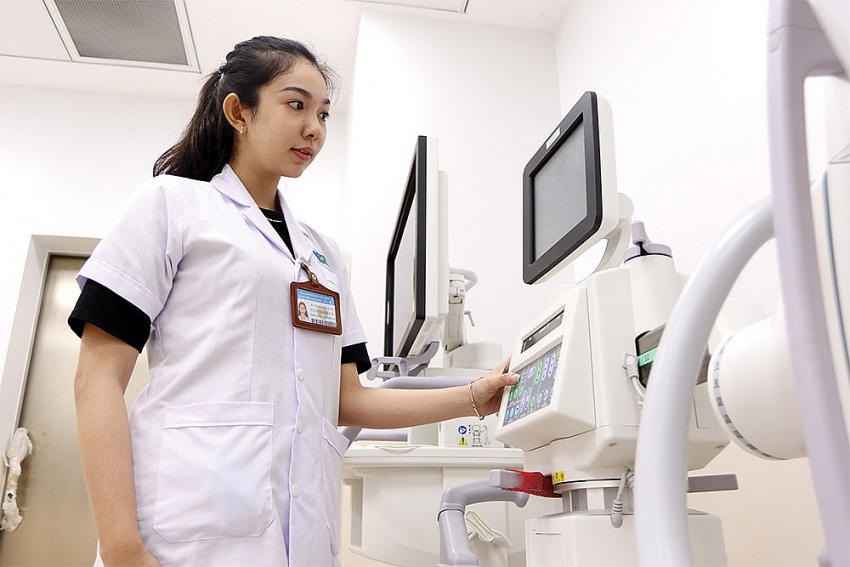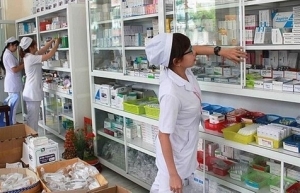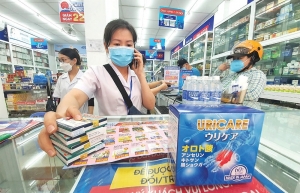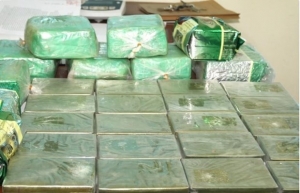Hospitals ready for procurement reform
The Ministry of Health (MoH) last week issued Circular No.05/2024/TT-BYT regulating the list of drugs, medical devices, and testing supplies subject to price negotiation, as well as the process and procedures to selection of bidders for price negotiation packages.
 |
| Some hospitals would like even smoother rules in order to pick up the devices and drugs they need most, photo Le Toan |
The circular includes improvements long-awaited by health facilities and businesses in the industry. Specifically, the regulation on price references has been abolished, thus easing procedures for drug suppliers.
In the past, drug suppliers had to provide price references of drugs being sold to Vietnamese authorities if they wanted to join bidding.
In Vietnam, the approaches to procurement in the healthcare sector include price negotiation and concentrated bidding. Price negotiation involves 1-2 suppliers and brand-name drugs, while concentrated bidding can attract a wider range of suppliers.
“The abolishment of price references is good news as such references in other countries are different from those in Vietnam because they depend on the volume, supply condition, financial and market conditions, and more,” one health expert told VIR.
Moreover, the circular lists almost 600 original brand-name drugs subject to price negotiation and references to biological products subject to price negotiation such as Aclasta, Nexium, and Zinnat tablets, among others.
Senior health expert Ngo Thanh Hai told VIR, “The extension of drugs in the list eligible for price negotiation has a huge impact on the market, especially foreign-invested enterprises. This issuance is expected to reduce the risk of shortages of necessary drugs at hospitals. For businesses, they have a mechanism to participate in buying and selling drugs in the Vietnamese market.”
The issues businesses are concerned about are clarifying the criteria for price negotiation, ensuring benefits for both consumers and businesses, Hai added.
“Thus, management agencies here will need many sources of information to evaluate, and set appropriate criteria with comparison of drug prices in Vietnam and other countries in the region,” he said.
The circular also contains the regulation to enable hospitals to procure medicines and medical supplies in the case of failing to negotiate prices with suppliers.
The guidelines come as a positive move to health facilities and businesses in the sector, as they have been waiting for it for months as previous procurement rules were deemed too complicated and problematic.
Bach Mai Hospital director Dao Xuan Co said, “Hospitals will be able to choose medical devices and supplies they want upon their requirements and financial capacity to meet people’s examination and treatment demands. We are eager to welcome the circular.”
Vietnam has previously issued guiding documents to remove obstacles in procurement and bidding in the health sector. They include Decree No.24/2024/ND-CP from February guiding the implementation of the Law on Public Procurement, and Decree No.96/2023/ND-CP, dated December 2023, guiding the Law on Medical Examination and Treatment, which aims to remove existing problems in procurement of drugs, medical supplies, and medical equipment.
Despite these moves, some health facilities are still struggling with public procurement. Dr. Le Anh Tuan, director of Ho Chi Minh City Eye Hospital said, “The biggest headache for hospital autonomy is procurement. Decrees and circulars have helped deal with some problems related to bidding in the healthcare sector, but not all of them. A complex situation remains at hospitals.”
Dr. Hoang Thi Diem Tuyet, director of Hung Vuong Hospital, added that the public procurement process takes up a lot of time as well as capital sources, from bidding for drugs and medical devices to construction and upgrades, as well as even smaller items like stationary.
“The sector should consider abolishing public procurement and then regulating prices of medical devices, drugs, and supplies at the time when they are imported into Vietnam, thus enabling hospitals to buy them at the regulated prices upon their demand,” she recommended.
 | Supply shortage pushes up prices of many drugs The prices of anaesthetics have increased due to supply disruptions, said insiders at some hospitals and dental clinics. |
 | Extension eases strain on drugs management International pharma businesses are pinning high hopes on smooth business performance after their long-expected proposal of extension of marketing authorisation for drugs was approved. |
 | Strong demand for high-quality drugs at reasonable prices As Vietnam experiences robust economic growth alongside a rapidly ageing population, the demand for pharmaceuticals and modern healthcare treatments has surged, with health expenditure in Vietnam witnessing an on-average growth rate of 11 per cent per year over the past decade. |
 | Over 3 tonnes of drugs seized in 14 months Customs authorities seized more than 3 tonnes of drugs of all kinds, with 365 suspects involved, from December 16, 2022 to February 15, 2024, according to a report by the Ministry of Finance to National Assembly deputies. |
What the stars mean:
★ Poor ★ ★ Promising ★★★ Good ★★★★ Very good ★★★★★ Exceptional
Themes: Healthcare Platform
- PM outlines new tasks for healthcare sector
- Opella and Long Chau join forces to enhance digestive and bone health
- Hanoi intensifies airport monitoring amid Nipah disease risks
- Cosmetics rules set for overhaul under draft decree
- Policy obstacles being addressed in drug licensing and renewal
Related Contents
Latest News
More News
- PM outlines new tasks for healthcare sector (February 25, 2026 | 16:00)
- Myriad risks ahead, but ones Vietnam can confront (February 20, 2026 | 15:02)
- Vietnam making the leap into AI and semiconductors (February 20, 2026 | 09:37)
- Funding must be activated for semiconductor success (February 20, 2026 | 09:20)
- Resilience as new benchmark for smarter infrastructure (February 19, 2026 | 20:35)
- A golden time to shine within ASEAN (February 19, 2026 | 20:22)
- Vietnam’s pivotal year for advancing sustainability (February 19, 2026 | 08:44)
- Strengthening the core role of industry and trade (February 19, 2026 | 08:35)
- Future orientations for healthcare improvements (February 19, 2026 | 08:29)
- Infrastructure orientations suitable for a new chapter (February 19, 2026 | 08:15)

 Tag:
Tag:



















 Mobile Version
Mobile Version